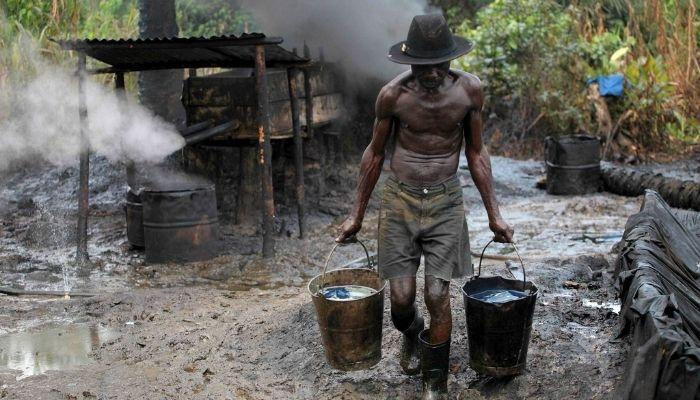
As the global energy landscape pivots toward sustainability and decarbonization, Nigeria stands at a critical juncture. With hydrocarbon reserves of 37.2 billion barrels of crude oil and 210.5 trillion cubic feet of gas, the nation’s oil and gas sector has long been an economic mainstay—contributing up to 10 percent of global GDP and powering everything from transportation to household appliances.
Yet, climate change, depleting fossil reserves and mounting environmental concerns demand a bold reimagining of how we produce, distribute and consume energy.
In the light of the aforementioned, Mr Abdulrahman Mujinyawa, General Manager, Development and Subsurface Nigeria, Renaissance African Energy Company Ltd., underscored the need to do things differently by driving energy sustainability, through role of technology, supply chain and policies implementation. Mujinyawa explained that technological advancements were in the fore front of sustainable energy solutions, enhancing efficiency, reducing emissions and improving operational safety. “Digital transformation is a strategic enabler of efficiency and competitiveness in the energy sector cutting edge tech such as Internet of Things (IoT). “Digital twins create virtual replicas of physical assets, allowing real- time monitoring and predictive maintenance,” he said.
He also described the Carbon Capture, Utilisation and Storage (CCUS) and Flare Gas Recovery and reduction initiative such as the ongoing Nigerian Flare Gas Commercialisation Programme (NFGCP) as a crucial technology in reducing greenhouse gas emissions. Carbon Capture, Utilisation, and Storage is a process that captures carbon dioxide (CO2) emissions from industrial sources, either uses them in various applications (utilisation), or stores them safely underground (storage) to prevent them from entering the atmosphere and contributing to climate change.
On role of policy in driving sustainability, the expert said policies, industry regulations, and international agreements could shape the sustainability landscape of the oil and gas sector by setting compliance standards, offering incentives, and fostering investment. He described government policies as catalysts for the transition to sustainable energy by establishing regulatory frameworks and aligning sustainability goals with economic and social priorities.
Mujinyawa listed key existing policies to include: The Petroleum Industry Act (PIA 2021): Environmental Impact Assessment (EIA) Act and National Oil Spill Detection and Response Agency (NOSDRA). He, however, explained that in spite of strong policies, enforcement had remained a challenge due to corruption, weak institutional capacity, and political interference. On supply chain, he listed procurement, logistics, operations, and waste management play critical role in determining the sustainability of the sector. According to him, sustainable energy transition requires efficient and resilient supply chains that minimise waste, optimise resource use, and promote circular economy principles. He argued that implementing responsible sourcing, digitalisation and low carbon logistics was crucial.
Mr Joseph Mordi, General Manager, Wells and Geoscience Operations, Shell Nigeria Exploration and Production Company Limited (SNEPCo), also underscored the need for achieving stability in the energy sector by leveraging AI machinery as catalyst for energy sustainability, towards decarbonisation. More so, the Nigerian National Petroleum Company Limited (NNPC Ltd.) listed digitisation, automation, Artificial Intelligence (AI) and advanced analytics as critical aspects redefining the entire energy value chain.
Mr Udy Ntia, Executive Vice, Upstream, NNPC Ltd, gave insights. He said that globally, upstream oil and gas companies were expected to invest more than 30 billion dollars in digital technologies in 2025. “As we forge ahead into this new energy era, let us remember that sustainability is not a destination. “It is a journey; a journey powered by technology, guided by sound policy, and anchored on a robust ethical supply chain.” He said that its digital transformation roadmap was anchored on three core pillars, intelligent automation, data governance, and cyber resilience. “But beyond revenue, our hydrocarbon wealth must now become a bridge to a broader, more sustainable energy future; technology is no longer an enabler. It has now become a fulcrum,’’ he said. In his opinion, the Group Managing Director of Eunisell Ltd., Mr Chika Ikenga, emphasised that sustainability was no longer an option but urgent responsibility. Ikenga said the sector was facing key challenges, ranging from rising cost, supply chain disruption, declining production, technology and financial constraints.
He said the company had tackled these challenges by investing in local research and development which had enhanced efficiency, local talent development and spur job creation. Ikenga called for collaboration to ensure more resilient energy environment and long term energy security in Nigeria. Speaking at the recent Nigerian Oil and Gas Opportunity Fair (NOGOF 2025), Capt. John Tonlagha, Executive Commissioner, Health Safety Environment and Community, Nigerian Upstream Petroleum Regulatory Commission (NUPRC), said to achieve sustainable growth in the oil and gas sector, robust upstream investments were essential. Tonlagha noted that attracting both local and foreign investment required concerted efforts to create an enabling environment characterised by stability, transparency, and regulatory certainty. According to him, production growth, on the other hand, hinges on optimising our existing resources and exploring new frontiers.
He said it involved adopting cutting-edge technologies and best practices to enhance efficiency and reduce operational costs. “By doing so, we can maximise our production capacity and ensure a steady crude oil and gas supply to meet both domestic and international demand. “The NUPRC’s mission in promoting sustainable value creation from Nigeria’s petroleum resources is geared towards driving investment and production growth by supporting indigenous capacity development, empowering local talent and businesses, fostering local expertise, achieving a reduction in our dependency on foreign companies and creating self-sustaining industry. “Educating and training to create indigenous capacity is very crucial, hence investment in specialised education programmes and vocational training tailored to the needs of the oil and gas industry,’’ he said.
In all, experts say both government and private sector stakeholders should combine the drive for investment and production growth with commitment to energy sustainability and environmental stewardship.
